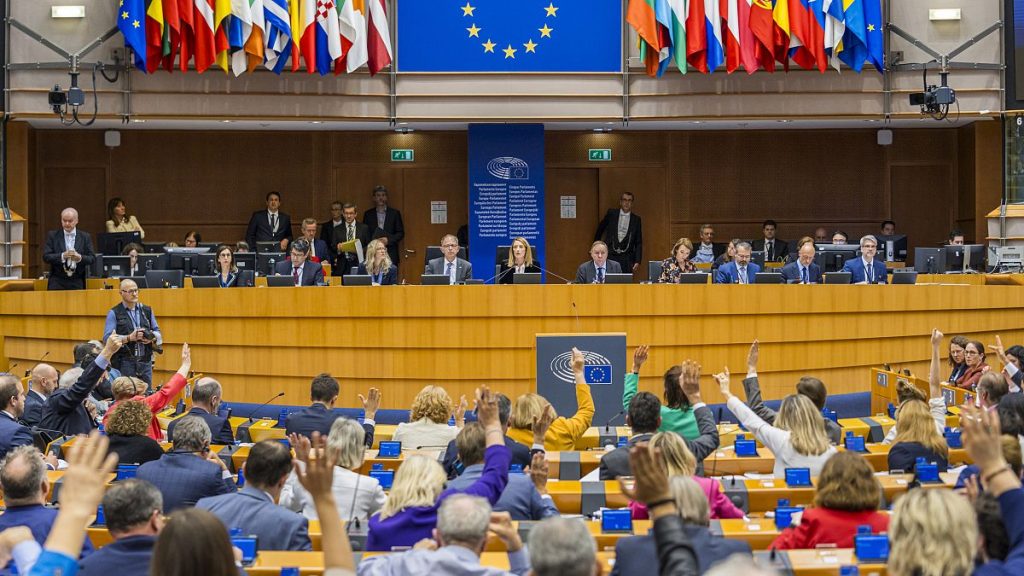MEPs in the European Parliament have recently approved new rules of procedure aimed at addressing various issues within the institution. These changes include the establishment of ‘super’ committees to deal with legislative packages presented by the EU executive, as well as enhancing inquiry powers over Commissioners. The goal is to streamline the legislative process and ensure democratic scrutiny over the EU executive. Special temporary committees with legislative powers can now be set up to address specific issues, allowing for more efficient decision-making.
One of the key changes in the new rules is the expansion of inquiry powers over Commissioners, allowing MEPs to question them on political actions of major importance. This was highlighted following the withdrawal of Markus Pieper from his appointment as SME envoy, which raised concerns about political favouritism within the EU executive. The rules also include provisions for more thorough confirmation hearings for newly appointed Commissioners, extending the length of grilling sessions to up to four hours.
Efforts to address the issue of absenteeism in parliamentary sessions have also been included in the reform. While attempts to encourage more visible participation in debates have been made, the issue of low attendance remains a challenge. Lawmakers will now be encouraged to sit at the front of the Chamber to give the illusion of a packed crowd, but there is no real obligation for them to stay in the room during debates they are participating in. This lack of mandatory attendance may continue to contribute to the problem of absenteeism.
Gender balance within the Parliament has been a longstanding issue, with women facing significant underrepresentation across various positions. The final provisions of the reform include an amendment aimed at incentivizing more female representation, but there are no binding obligations on quotas. Political groups are encouraged to nominate candidates that respect gender balance when electing key positions within the Parliament. The rules now also specify that the gender balance within the college of commissioners will be examined during scrutiny over the Commission.
While the new rules aim to address longstanding issues within the European Parliament, such as absenteeism and gender imbalance, some of the more ambitious amendments were watered down in the final text. Efforts to streamline the legislative process through ‘super’ committees and enhance inquiry powers over Commissioners are among the key changes brought about by the reform. The hope is that these changes will lead to a more efficient and transparent parliamentary system that better serves the interests of European citizens.
Overall, the new rules of procedure in the European Parliament represent a significant step towards addressing key challenges facing the institution. By establishing ‘super’ committees, enhancing inquiry powers over Commissioners, and addressing issues of absenteeism and gender imbalance, the Parliament aims to strengthen its democratic credibility and relevance within the EU. While some provisions may have been toned down during negotiations, the reforms signal a commitment to improving the functioning of the European Parliament and better serving the interests of European citizens in the years to come.













